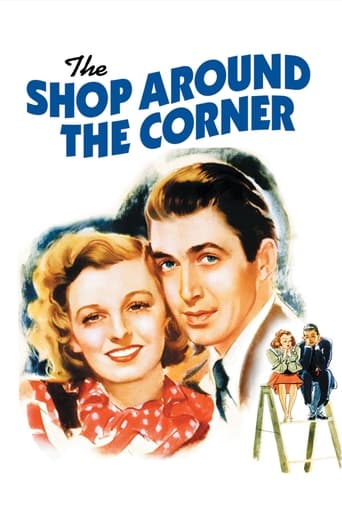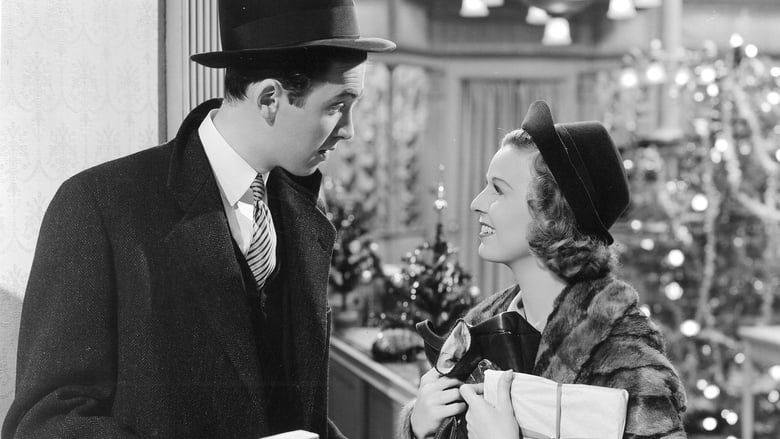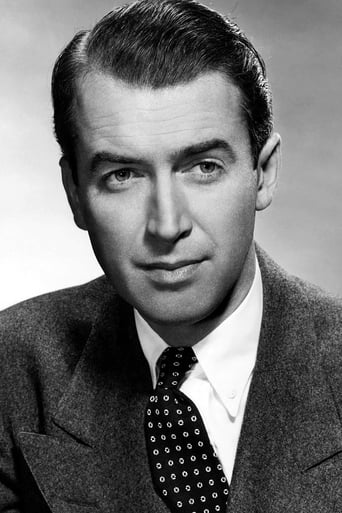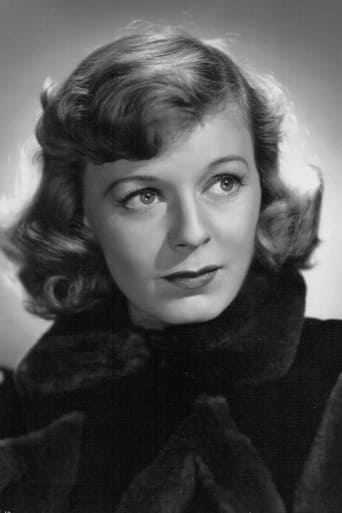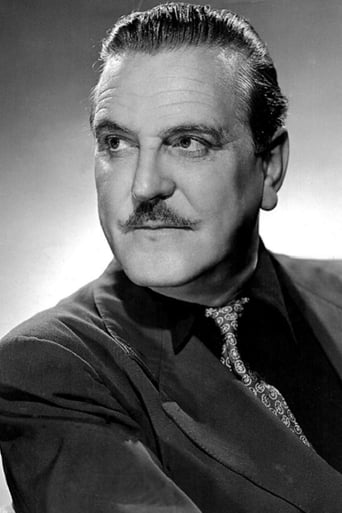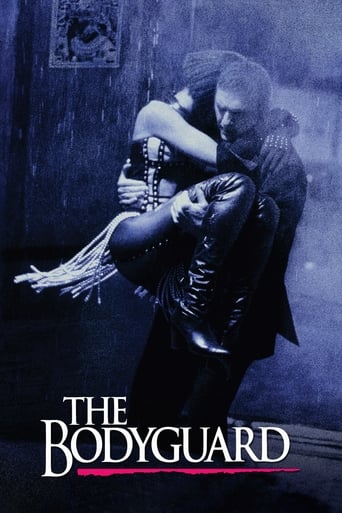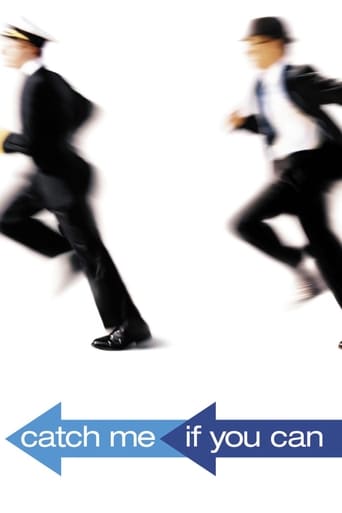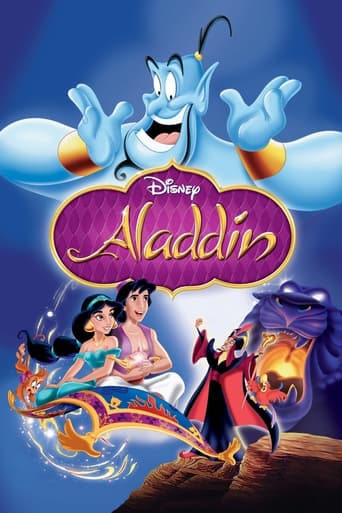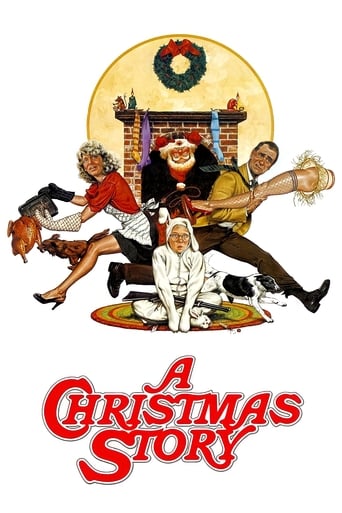The Shop Around the Corner (1940)
Two employees at a gift shop can barely stand one another, without realising that they are falling in love through the post as each other's anonymous pen pal.
Watch Trailer
Free Trial Channels
Cast


Similar titles
Reviews
Critics,are you kidding us
It is not deep, but it is fun to watch. It does have a bit more of an edge to it than other similar films.
The film's masterful storytelling did its job. The message was clear. No need to overdo.
Let me be very fair here, this is not the best movie in my opinion. But, this movie is fun, it has purpose and is very enjoyable to watch.
The perfect film for Christmas. for its nuances. for charming performances. for James Steward in his special way to build the role. for family atmosphere. for the small detail than, each you see it, it seems different. the motif - it is one of films who could be defined as ...perfect. the atmosphere, the story, the Capra flavour, the science to use each actor in the best manner for create a small universe, far to be perfect, but seductive, nice and lovely. a film about love and essence of love. beautiful. or just admirable.
I'm not really sure if this film qualifies as a Christmas movie but I'm going to add it to my list of holiday films anyway. It has just the right tone and spirit to warm one's heart following a series of misunderstandings between the principals, admirably portrayed by Margaret Sullavan and James Stewart.There's a nice snowfall scene in the picture that calls to mind the town of Bedford Falls from another Stewart classic, "It's a Wonderful Life". Stewart himself evokes an entire range of emotions in his portrayal of lead salesman Alfred Kralik. Just catch his reaction when Klara (Sullavan) stuns him with the remark about being an insignificant little clerk. And this after he realizes that she's his secret sweetheart, which will remain unknown to her until very near the end of the story.Frank Morgan never seems to disappoint in any of his pictures, and I thought he brought a finely subdued element of Professor Marvel to his characterization here of Hugo Matuschek. However I had to wonder whether the story line could have found another way of his dealing with his wife's infidelity rather than contemplating suicide. For a holiday themed picture, that was a rather morose curve ball to throw at the viewer. Fortunately that theme worked itself out favorably but it was rather jarring when encountered as an off screen gunshot.Perhaps the sweetest thing going for the movie was Kralik's early observation that for him, above average beauty wasn't a prerequisite for finding the right woman and falling in love. His simple taste called for a lovely, average girl. The entire time, and even throughout those recurring arguments between Klara and Alfred, the viewer never doubts that that this was a couple made for each other.
It's easy to see romantic comedies containing ridiculous premises - we've had them now with Hollywood for decades - but like so much in cinema what has to work is the execution. You could have a meet cute that involves two people meeting by accidentally bumping into each other and striking up a conversation about their dogs in 2016 (sound familiar at all?) and it could be a terrific, entertaining, engaging and artistically driven film if there's some heart behind it, if we can get behind the characters, and the actors and director are sympatico with how to add some humanity to the situation. Ernst Lubitch and Margararet Sullivan and Jimmy Stewart have that with Shop Around the Corner, and that's what counts.Hell, the movie may sound familiar because it IS now remade (1998's You've Got Mail): Klara gets a job through showing off a skill (apparently it is one) to sell an object like a music box to a newcomer to the owner of Matuschek's (Frank Morgan, Oz's Wizard in an apt role), and yet this doesn't sit well with Alfred, who can't stand the music box (mpph, he says, what if someone smokes 20 cigarettes a day, it'll get in their heads!) or maybe even her for that matter. But his animosity is also met by her's, and yet unbeknownst to each other they have a correspondence going with people they find "wonderful" and arrange some months after - it cuts ahead in time, it's fine - to finally meet. And of course they are writing to one another.So it's cute, it's precious maybe, but everything in this script is realistically drawn by Samson Raphaelson (from a play, and apparently it's why this takes place in Hungary for some reason or another). That is to say, no one really acts too much like an idiot (a common problem with today's rom-coms, when they do some out but you know what I mean), and there's even an element of sadness to the film, of things not working out for people and betrayal and mistrust. In a way it's as much about trust and belief in others as it is about love if not more-so, and a lot of this comes out in a sub-plot that makes the film as good as it is.What happens with this sub-plot? Well, Mr Matuschek is becoming more brusque with his employees as time goes on - he cares that things get sold and that his employees do things like stay after, just ONCE per year, to help set things up for Christmas - and it leads to an argument with Alfred that later in the same day results in Alfred being let go from the job. This isn't the kind of scene many might expect when coming to a screwball romantic comedy (and this isn't really screwball, but you also know what I mean). It's dealt with in a degree of reality, and that there's sadness to what's happened to Alfred and how Stewart and Morgan act the scene together when the boss tells him employee he's fired it's not something explosive or melodramatic, it's subtle and it cuts deep since we know there's this connection between the two going back years (Alfred being the oldest employee he has).And then there's Matuschek's marriage, which drives a lot of this sub-plot conflict, and it's not silly or meant for laughs. If anything the movie may lack some laughs in places, but there are enough that it satisfies as a comedy, if not *as* much as Trouble in Paradise or To Be or Not to Be (very different movies but also films dealing with romance and status in society). I think the real juggling act for Lubitsch here is to have this light tone, to have the kind of "ooh, I can't STAND you!" dynamic that Stewart and Sullivan have here - and I think Stewart is a better fit than in the other 1940 mega Rom-Com, The Philadelphia Story, which is possibly more entertaining overall but not as strong as a story - and there's that part of it, and then there's the dramatic parts. This is a business we're meant to take seriously as a place that Matuschek's made for his employees to feel like they're at home (with one exception, who I won't mention here but is revealed to be the sort of "heel" of the movie), and when this old man gets drama in his life it tears him apart despite his work life.I wish I could put into words what makes this movie so special, and I think that it's *because* that Lubitsch has this plot contrivance involving these two people and their correspondence, and how Alfred finds out first that Klara has been writing to him all along and he doesn't mention anything about it when he goes into that restaurant (only to let the tension and words and verbal aggression continue), that he has something to work with. It's fun to see this push and pull between the two, but then also how they naturally, mostly from Klara to Alfred, build attraction over the course of the story.So by the time it gets to that ending, it's not corny or cheesy, it's earned and emotional and it feels like a fable come true in some odd way. The Shop Around the Corner both reflects the economic uncertainty of the period (remember this is still pre WW2 and though it's Europe I'm sure it wasn't so different as in the US far as lack of work goes) and fulfills a good part of drama for how characters see one another and how misconceptions can drive things to a tipping point (and will one go over or not), and then also how a sweet romance can be concocted amid all of this. 9.5/10
The Shop Around the Corner was the first Ernst Lubitsch film I saw and as soon as the characters started interacting with each other I instantly knew this was a guy who knew how to handle dialogue in what is referred to as the so called 'Lubitsch Touch'. With such levels of subtly this is the kind of movie that needs to be watched multiple times and gets better every time you do so. Often there will be a verbal joke in which I am unaware it even is a joke and it will take a few seconds to catch onto it. Most of Lubitsch's films where set in Europe as this was where he was from. The shop of Shop Around the Corner is in Budapest, Hungary. The world this movie is set was on the brink of destruction in 1940 but there is no mention of this in the film. Just like the how the film hearkens back to a more peaceful time it also acts like a nostalgia portal to a time before the internet or big corporate businesses. A shop which is a physical, hands on and above all a communal experience. The shop is a world onto its own populated by unforgettable characters.Like Lubitsch, most of Margaret Sullavan's movies also took place in Europe, I don't know of the reason for this however; a big coincidence or did she deliberately choose to star in movies with European settings? James Stewart and Margaret Sullavan aren't remotely Hungarian but classic Hollywood movies aren't exactly known for their realism in this regard. I also find it humorous how Klara is able to get a job by walking into a store and proving she is capable of selling items; if only it were that easy in real life! The Shop Around the Corner is one of the prime examples of the classic "they hate each other but are really in love"; in fact they really hate each other. Stewart's Alfred Kralik is actually a real asshole; he's brash and very opinionated. Likewise Margaret Sullavan isn't a sexy, glamorous Hollywood star; Klara Novak is a down to Earth, intellectual. As the movie progresses you so badly want these two characters to end up together to the point that it hurts. These aren't two performers with great chemistry, these are two performers with incredible lifelike chemistry which blends the dividing line between fiction and reality. If ever there was an on screen couple how where made for each other, this is it.

